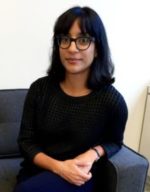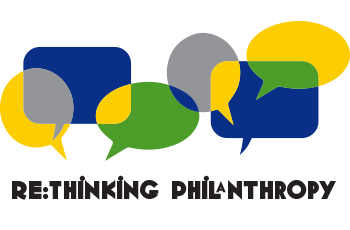Both urban and rural communities in New York State are contending with mounting challenges- the opioid crisis, poverty, unemployment, and educational attainment, to name a few. Philanthropy is uniquely positioned to reform the practices of failing systems and strengthen communities. As a result, funders often take the lead on developing sustainable solutions.
When our community has a crisis that goes above, or cuts across our funding areas, how can we respond quickly, be supportive, and make change? In the effort to improve communities our unique missions provide focus, and allow stakeholders to have complementary approaches. However, does that leave an unintended consequence of allowing the most vulnerable to fall through the cracks?
This is when we can look to our existing collaborations, and portfolio of work, to implement a low or no cost strategy to broaden our reach:
1. Investigate the issue and its impact on community;
2. Identify how the affected community may overlap, or be included in, the population you currently serve;
3. Work with grantees and partners to identify opportunities to provide tailored support to this sub-set of your grantees’ population with minimal investment.
There are several subgroups that we could pay more attention to: new Americans, the disabled, communities of color, women and girls, drug and substance users, and so on. How can we improve our overall impact by providing more tailored support to subgroups within our existing grant-making?
A population of particular concern to me are children and youth who are in foster care. This is also a group that is increasingly vulnerable, and presents in many other high-need populations. New York State’s foster care system is in crisis. We are one of the worst performing states in protecting our children and in finding them homes (respectively ranked 46th and 48th nationally). Youth who grow up in the system without family are at a high risk of becoming homeless, incarcerated and in poverty.
The Western and Central NY Funding community can really make a difference in the lives of those in foster care. We can begin by simply learning about their needs and identifying ways to support them in our existing grant-making, from education to workforce development. I invite you to learn more in a webinar on December 8th, titled “Solving the New York State Child Welfare Crisis.” (Sign Up Here)
The responsibility to meet the shifting needs of community is both a challenge and a privilege for funders. By asking questions and learning more, we can discover new opportunities to broaden and deepen our impact within existing projects.
Rashida Abuwala
Program Officer, Redlich Horwitz Foundation
About The Author
 Rashida Abuwala is a Program Officer at the Redlich Horwitz Foundation, dedicated to improving the lives and long-term outcomes of children and young adults in the foster care system in New York and elsewhere. She is responsible for developing and implementing the Foundation’s strategy for improving foster care practices and outcomes in New York State through grant-making, research and advocacy working in partnership with nonprofit, county and state government entities. Since joining the foundation, Abuwala is leading efforts to increase family-based placement, safe and timely exits from foster care, and has launched initiatives in five crucial New York State counties to improve the process for foster youth to exit to a permanent family.
Rashida Abuwala is a Program Officer at the Redlich Horwitz Foundation, dedicated to improving the lives and long-term outcomes of children and young adults in the foster care system in New York and elsewhere. She is responsible for developing and implementing the Foundation’s strategy for improving foster care practices and outcomes in New York State through grant-making, research and advocacy working in partnership with nonprofit, county and state government entities. Since joining the foundation, Abuwala is leading efforts to increase family-based placement, safe and timely exits from foster care, and has launched initiatives in five crucial New York State counties to improve the process for foster youth to exit to a permanent family.
Prior to joining the Foundation, Rashida served as the Chief Program Officer at Boys’ Club of New York, where she co-developed and implemented a five-year strategic plan, resulting in new programs, improved youth outcomes, and an increase in stakeholder engagement and funding. Her leadership led to the gain of more than 10 new funding streams, $1 million in revenue, increased press coverage and improved youth academic, mental and physical health and social-emotional outcomes. With expertise in social research, program design and evaluation, Rashida has worked in youth development, social service, court innovation, political intelligence, grass-roots policy reform, and has authored several articles and papers. Rashida holds a Master of Science degree in Social Research Methods and Comparative Politics from the London School of Economics and Political Science and a Bachelor of Arts degree in Political Philosophy from Wesleyan University.


Post a comment